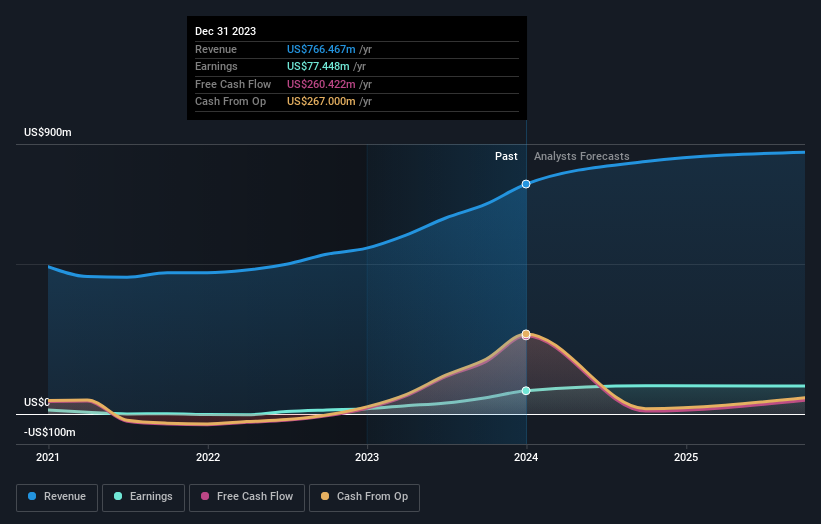What Does Powell Industries, Inc.'s (NASDAQ:POWL) Share Price Indicate?
Powell Industries, Inc. (NASDAQ:POWL), might not be a large cap stock, but it saw a significant share price rise of 109% in the past couple of months on the NASDAQGS. While good news for shareholders, the company has traded much higher in the past year. Less-covered, small caps tend to present more of an opportunity for mispricing due to the lack of information available to the public, which can be a good thing. So, could the stock still be trading at a low price relative to its actual value? Let’s take a look at Powell Industries’s outlook and value based on the most recent financial data to see if the opportunity still exists.
See our latest analysis for Powell Industries
Is Powell Industries Still Cheap?
According to our price multiple model, which makes a comparison between the company's price-to-earnings ratio and the industry average, the stock price seems to be justfied. In this instance, we’ve used the price-to-earnings (PE) ratio given that there is not enough information to reliably forecast the stock’s cash flows. We find that Powell Industries’s ratio of 24.86x is trading slightly above its industry peers’ ratio of 20.85x, which means if you buy Powell Industries today, you’d be paying a relatively reasonable price for it. And if you believe that Powell Industries should be trading at this level in the long run, then there should only be a fairly immaterial downside vs other industry peers. Furthermore, Powell Industries’s share price also seems relatively stable compared to the rest of the market, as indicated by its low beta. This may mean it is less likely for the stock to fall lower from natural market volatility, which suggests less opportunities to buy moving forward.
What does the future of Powell Industries look like?
Future outlook is an important aspect when you’re looking at buying a stock, especially if you are an investor looking for growth in your portfolio. Buying a great company with a robust outlook at a cheap price is always a good investment, so let’s also take a look at the company's future expectations. With profit expected to grow by 21% over the next year, the near-term future seems bright for Powell Industries. It looks like higher cash flow is on the cards for the stock, which should feed into a higher share valuation.
What This Means For You
Are you a shareholder? POWL’s optimistic future growth appears to have been factored into the current share price, with shares trading around industry price multiples. However, there are also other important factors which we haven’t considered today, such as the track record of its management team. Have these factors changed since the last time you looked at POWL? Will you have enough confidence to invest in the company should the price drop below the industry PE ratio?
Are you a potential investor? If you’ve been keeping an eye on POWL, now may not be the most optimal time to buy, given it is trading around industry price multiples. However, the positive outlook is encouraging for POWL, which means it’s worth further examining other factors such as the strength of its balance sheet, in order to take advantage of the next price drop.
In light of this, if you'd like to do more analysis on the company, it's vital to be informed of the risks involved. For example, we've discovered 2 warning signs that you should run your eye over to get a better picture of Powell Industries.
If you are no longer interested in Powell Industries, you can use our free platform to see our list of over 50 other stocks with a high growth potential.
Have feedback on this article? Concerned about the content? Get in touch with us directly. Alternatively, email editorial-team (at) simplywallst.com.
This article by Simply Wall St is general in nature. We provide commentary based on historical data and analyst forecasts only using an unbiased methodology and our articles are not intended to be financial advice. It does not constitute a recommendation to buy or sell any stock, and does not take account of your objectives, or your financial situation. We aim to bring you long-term focused analysis driven by fundamental data. Note that our analysis may not factor in the latest price-sensitive company announcements or qualitative material. Simply Wall St has no position in any stocks mentioned.

